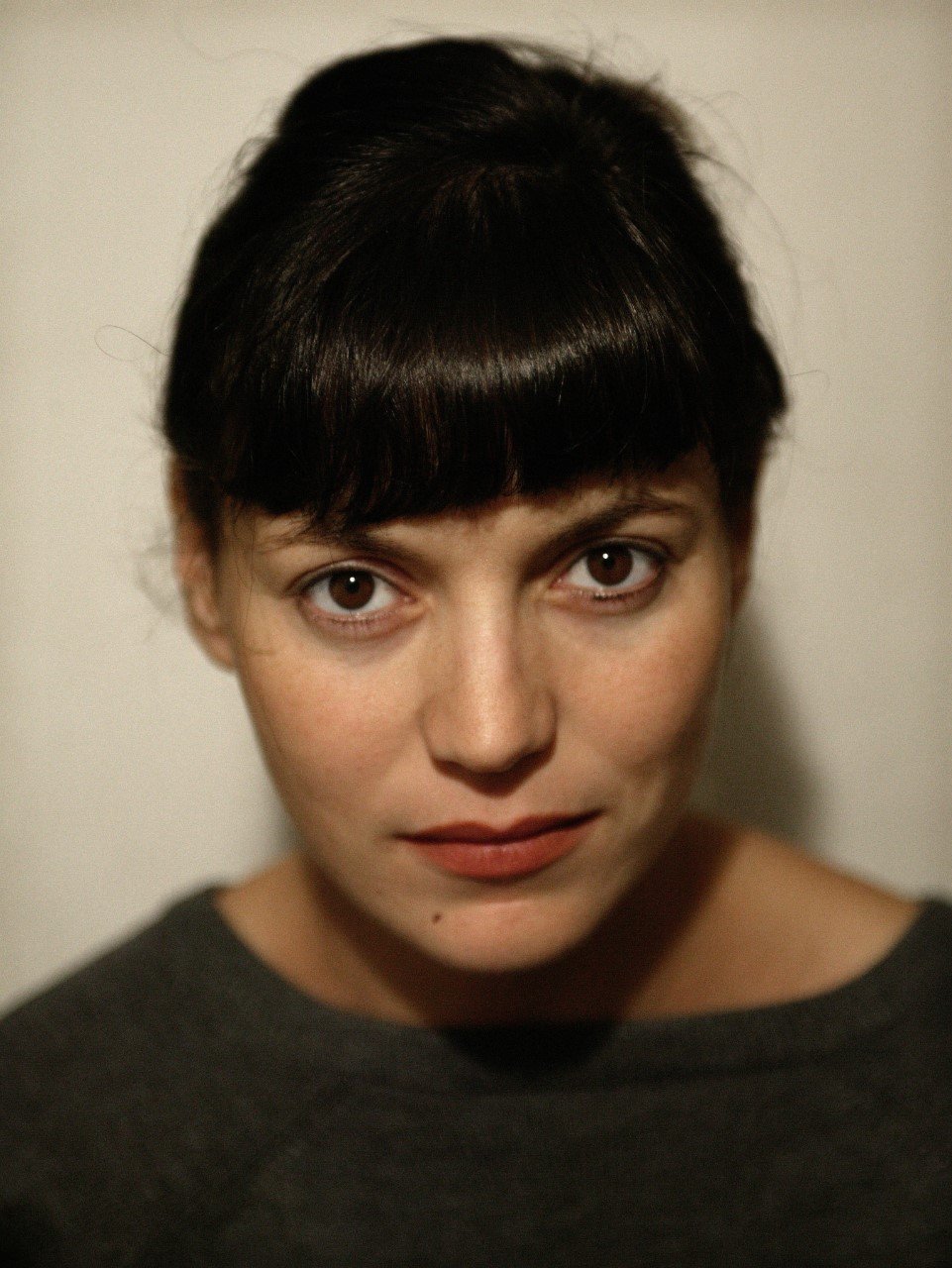
While many of us continue to work from home, we’re checking in with artists about the creativity they’ve been cooking up in their kitchens. Read on for the first installment in our new series on artists’ favorite recipes.
Moroccan artist Yto Barrada has become the keeper of her family’s recipes—just don’t ask her to make them for you.
“I am not a cook,” Barrada told Artnet News. “I know how to do it, but that doesn’t mean I do it.”
Still, she spent years putting together a family recipe book, asking her mother, aunts, and other family members about how to making classic Moroccan dishes, from baked goods to offal meats, and everything in between. The task was complicated by the fact that, in practice, there were no real, written-down recipes for the dishes Barrada grew up eating at home.
Yto Barrada’s mom (top right) with her brother, sister and a neighbor, in the artist’s family cookbook, designed by Nadja Zimmerman. Courtesy of the artist.
“It’s the old generation’s way of learning. So the measuring is in their eye. There’s no precise instruction,” she said. “If you haven’t spent your life under the table in the kitchen—listening, looking, tasting—you haven’t learned.”
Completed about two years ago, Barrada’s book (for family members only) includes photos and snapshots, making it something of a family album as well as a cookbook.
Yto Barrada’s grandmother Zhor holding a baby. Photo courtesy of the artist.
Andria Hickey, a senior director at Pace Gallery, and chef and art handler Jason Murphy heard about Barrada’s cookbook and enlisted her to participate in their Wide Awakes Mobile Soup Kitchen. Barrada agreed and soon was preparing her grandma Zhor’s harira soup, a filling dish typically used to break fast during Ramadan, for 300 food-insecure New Yorkers as a weekly guest chef.
“I thought I was going to be a number two in the kitchen. It was the first time I really cooked for people,” Barrada said. “But I tasted it, and I don’t think it was too bad!” (The soup kitchen’s Instagram offered a more glowing review: “People who we served were losing their minds. It was soooooo good!”)
Yto Barrada using natural dye. Photo courtesy of the artist.
But for the most part, Barrada’s time in the kitchen has been in service of her art. “I have some Moroccan friends who turned into fabulous cooks during the pandemic. Unfortunately, I’m not one of them,” she said. “The main thing I did in the kitchen was dyeing textiles—which is close to cooking. It uses pots and pans.”
Barrada first began incorporating dyeing into her practice when she moved to New York in 2013, as an artist in residence at the Textile Arts Center in Brooklyn.
Yto Barrada’s plants for natural dye. Photo courtesy of the artist.
Today, Barrada is the subject of a solo show at Pace’s gallery in East Hampton, and she’s preparing to open what she’s dubbed the Mothership, a botanic forest garden and color research center in Tangier that will host her textile library as well as a residency program. Barrada hopes to revive the art of making natural dye, which she describes as a cross between science and cooking.
Find the recipe for Barrada’s highly acclaimed harira soup below.
Yto Barrada’s family recipe for harira soup, served over rice for the Wide Awakes Mobile Soup Kitchen. Photo courtesy of the Wide Awakes Mobile Soup Kitchen.
Yto Barrada’s Grandma Zhor’s Harira Soup
serves six
1 large ripe tomato blended in blender
1 tsp tomato paste
1 lb lamb loin or lamb meat of your choice, cut to bite sized pieces
1 medium onion diced
1 cup of canned chickpeas (drained and rinsed)
1 cup of lentils
½ cup fresh chopped cilantro
½ cup fresh chopped parsley
1 single stalk of celery medium dice
1 cinnamon stick
½ tsp unsalted butter (can use salted butter if that’s what you have)
1 tbsp extra virgin olive oil
1 tbsp unbleached white flour
Juice from one lemon
Pinch of saffron
1 tbsp salt
1 tbsp fresh cracked black pepper
In a large pot, mix together the onion, lamb, oil, butter, ¾ cup water, cinnamon stick, salt, pepper, saffron, half of the fresh parsley, and half of the fresh cilantro.
Let it cook 15 minutes, stir regularly until onions and lamb are fully cooked. Next add six cups of water, blended tomato, celery, tomato paste, chickpeas and lentils.
Next whisk together lemon and flour in a separate bowl and set aside.
Bring the pot to a boil and then turn down to a medium simmer. Once the lentils are fully cooked, slowly stir in flour and lemon juice. Stir the pot thoroughly. Continue to simmer for 10 minutes. If the soup is too thick, add some water. If it is too thin, slowly add more flour.
Five minutes before the soup is done, add the rest of the fresh finely chopped cilantro and the fresh chopped parsley. Add salt to taste if needed.
“Yto Barrada” is on view at Pace, 68 Park Place, East Hampton, New York, May 12–23, 2021.
“Artist’s Choice: Yto Barrada—A Raft” is on view that the Museum of Modern Art, New York, May 8, 2021–January 9, 2022.